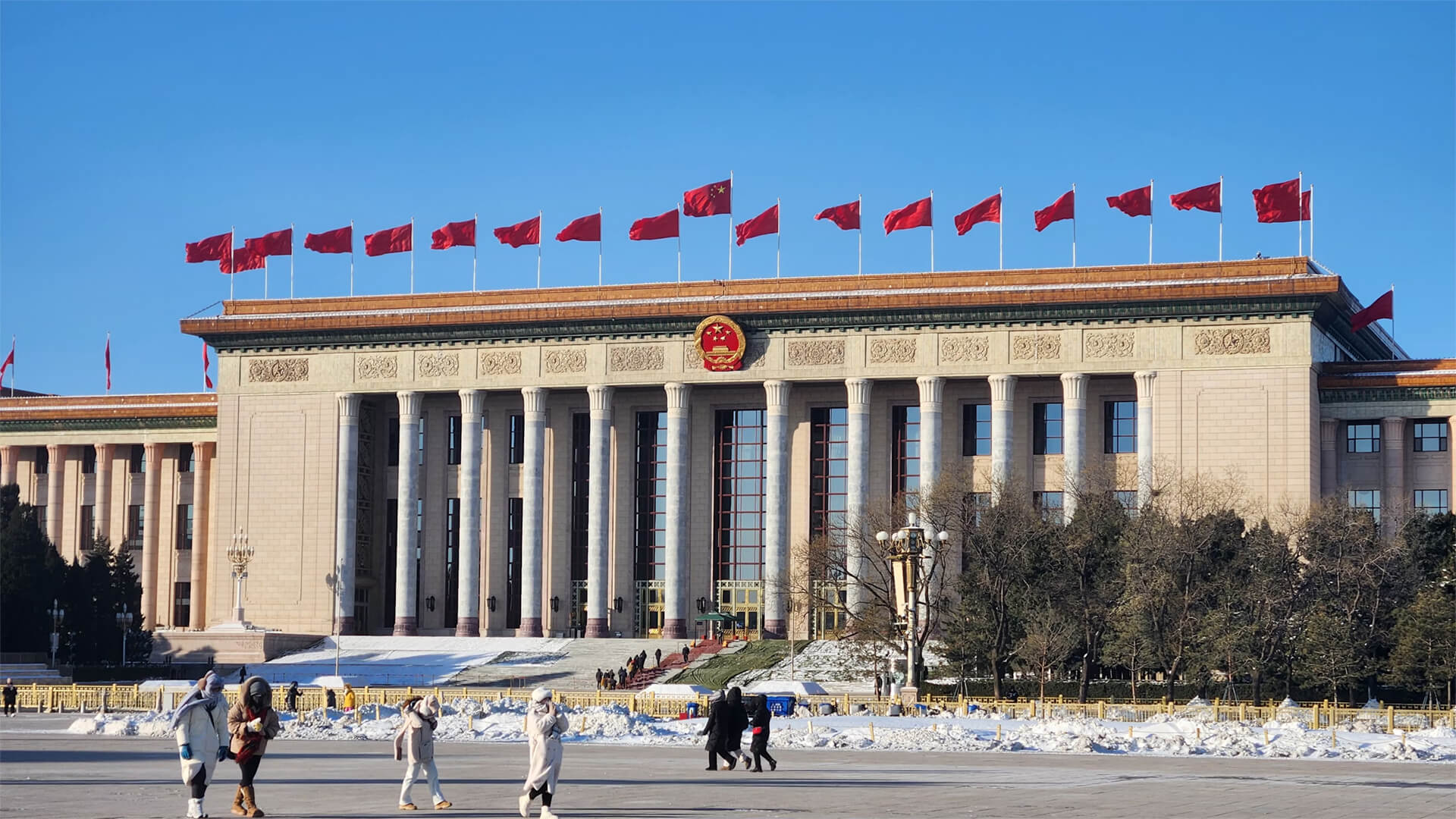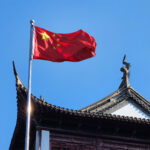In this video, Peter mentioned a total fertility rate (TFR) of 0.5. While this may be the case for certain urban cores, China’s national TFR is closer to 1.0. Still abysmal, though slightly less catastrophic. —ZoG
Everyone knows where I stand on China, but how will Trump’s second term play into that?
Let’s run through China’s situation. The Chinese economic model is dependent upon continuous capital flows. Should that be interrupted, China’s industrial economy could collapse. The demographic picture is bleak too, as birth rates continue to decline and the population ages. And Xi Jinping’s master plan to fix all this is to push workers harder, tighten state controls and micromanage reproduction.
Trump is fixated on reducing trade deficits, but China has been able to sidestep previous deals due to lack of enforcement. Trump needs to work with our other Asian allies to counter China’s influence, and some more faith in defense institutions wouldn’t hurt either.
Overall, the Chinese view Trump as a disruptor and relatively easy to manipulate. While there is some historical truth to that, Trump has shifted US sentiment to be broadly anti-China, so tariffs and supply chain diversification get bipartisan support. The question remains, what will Trump actually accomplish? Tariffs are one thing but planning and developing an alliance network and alternative industrial capacity are a completely different beast.
Here at Zeihan on Geopolitics, our chosen charity partner is MedShare. They provide emergency medical services to communities in need, with a very heavy emphasis on locations facing acute crises. Medshare operates right in the thick of it, so we can be sure that every cent of our donation is not simply going directly to where help is needed most, but our donations serve as a force multiplier for a system already in existence.
For those who would like to donate directly to MedShare or to learn more about their efforts, you can click this link.
Transcript
Hey, everybody. Peter Zeihan here. Coming to you from Blenheim, New Zealand, where I am walking through a vineyard, because that’s just what I like to do. Anyway, today we’re gonna do the second part of our open edit series on the issues that’s going to be facing President-Elect Trump on his first day of office, not the ones that he wants to face, the ones that are going to face him.
And today we’re going to talk about China. First things first, let’s review what it is that the Chinese are dealing with. Before we talk about how Trump plugs into that, China has an economic model that is based on central state control, and that means the state controls the financial system and uses the financial system to shove money into whatever economic sector they feel that they need to.
Now, they use this to achieve technological control of certain areas where they feel they can master the tech. They use it to subsidize development of technologies that they don’t master in the hopes that they will be able to. And they do it to build out the supply chains locally so they can drive competitors internationally out of business. But all of that pales to the primary goal, which is to make sure that everybody has a job so that nobody goes out in protest and gets together in a large group and goes on a long walk together, because that’s how the government got its job in the first place, and they don’t want that to happen to them.
So you get this system that is over capitalized or capital is remarkably cheap. And as long as the capital keeps flowing, everything’s happy and for those of you who have ever been part of an economic sector that has busted, whether it’s, say, energy during a bust period or a boom bust period, or Enron or real estate back in the 2007, the 2009 crisis, you know this very well.
As long as the capital keeps flowing, as long as the capital is cheap, then the system keeps running. But if for whatever reason, capital access dries up, then this artificially inflated sector basically withers away to nothing in a very short period of time. And the Chinese have been doing it. So long in so many subsectors that if that capital stopped flowing at any time, you’d basically see the end of China’s industrialized state at this point.
That’s problem one. Problem two demographics. When you tell everyone that what you’re supposed to do as a Chinese is just work 12 hours a day, six days a week, well, there’s not a lot of room for anything else. When you pull people off of the farm and put them into the city so they can work 12 hours a day, there’s not a lot of time in their lives or physically in their apartment for kids.
And so the birth rate drops and drops and drops and drops. And according to the most recent data, from December of 2024, the average woman in China is now having less than a half a child. So in most of China, we have a repopulation rate that is one quarter what is necessary just to sustain the population? We probably almost certainly have a lot more people in China over age 50 than under.
And the place is looking at demographic collapse. And if you remember back to my earlier demographic work, most of the consumption that is done in the society is done by people who are under age 45, who are raising their kids and building homes. And that population is basically becoming an endangered species in China. And now that birth rate has been so low for so long, it’s been lower than the United States since the 1990s that we are looking at the dissolution of the heart of city around the end of the century.
And there’s no way that the Chinese state will last very long. I’d say a decade or less at this point. So that’s their starting point. In order to make their system last as long as possible. Sherman Ji believes three things. Number one, everyone just has to work harder, which is only compounding the demographic situation because no one really sees a hope that this is going to change.
Number two, he believes that the Chinese Communist Party, which let’s be specific here, it’s not the parties interested, it’s him, should face no challenge to its authority, and it should be able to micromanage every aspect of everyone’s lives. In fact, we now have the agency that used to enforce the one child policy making unannounced house calls to see if couples are having sex without contraception to make sure the birthrate goes back up, because that’s what the state wants now.
You can imagine how well that goes over. And third, he has to keep export markets open because all of this production, all of this forced production, all of this over subsidized production can’t be consumed by the population because most of them are now over 45, which means it has to be exported. So they have to be able to shove the products they produce down everyone else’s throats just to keep their country alive.
Enter Donald Trump. Donald Trump is singularly obsessed with the trade deficit, which is probably not the best way to look at the issue. But that’s how he sees it. So it doesn’t matter what I think. And as a result, he likes to think that he can make deals that will force things in the United States, his direction.
For the most part, the Chinese, especially at the top, are not worried about this because they’ve dealt with him before. They see him as an eminently lateral person. And so they basically give way in negotiations, knowing that the day after the negotiations close, that there will be no enforcement and they never have to worry about him again.
Why do they feel this way? They’ve already done it before. The phase one trade deal that was negotiated by the Trump team back in. Who was it seven, six years ago, committed the Chinese to buying X number of dollars of various products and by the end of the Trump term, he hadn’t met any of the criteria at all.
In fact, they never intended to. All they did was make sure that whenever there was a product like what they needed available anywhere else in the country, they went to that first. So actually, we saw the trade deficit in a structural sense, go up because of trade talks with the Trump administration. The other reason that the Chinese are really not concerned about Trump is that they don’t take him seriously as a strategic thinker.
The Chinese understand, as everyone in Asia understands, that if you want to him in China, you can’t do it alone. It can’t be just a trade. You can’t just be a strategic issue. It has to be holistic. You have to bring in all the other countries, from Indonesia to Malaysia to Singapore to the Philippines, to Taiwan, to Korea, to Japan.
And if you don’t do that, the Chinese will easily find a weak link in the chain and be able to push out. And they see Donald Trump as being more danger to the alliance than they are now, whether or not that is accurate enough of that. That’s how they see things. And again, they’ve done this before with Trump the first time around.
They don’t see anything different in round two except the Donald Trump is trying to wreck, law enforcement and the Defense Department and, the intelligence agencies with his appointees, which are the things that generally keep China in check as well as, if you’re going to have any sort of meaningful policy against China that deals with security and culture and technology and theft and trade, you need everyone working together.
And they see Donald Trump as the best possible candidate for wrecking that capacity within the American system. So they’re actually broadly looking forward to Trump two, because they think they’re going to be able to get even more out of the United States than they did under Trump. One, much like the Russians are feeling and like the Russians, I think they’re miscalculating.
This is not 2017. We are in a very different world now. And the single biggest difference on the Chinese front is that Donald Trump did succeed in changing the conversation in the United States, and there is now a competition among all factions in Congress about who can be the most anti-Chinese. Now, translating that sentiment and policy, that’s a lot easier said than done.
But there’s no longer this core disagreement within the parties because the business community has been ejected from the Republican coalition. So the faction that used to be the most organized and calling the shots in the Republican Party on economic policy is no longer even part of the conversation, which leaves everybody else to fill the gap. And no one else is as concerned with economic stability as the business community was.
So we’ve already seen in the last five years a significant outflow of investment from China, foreign firms and even of Chinese firms as everyone tries to get away from this country. That is facing economic implosion because of its demographic issues. And while Donald Trump certainly isn’t the guy to build a broad coalition within his own government, much less across multiple governments, to have any sort of coherent policy towards China, dude knows how to do tariffs.
And that is certainly something that’s going to hit the Chinese on the headline. Now, as a rule, I would say tariffs are a really bad tool for shaping policy. So for example, the terror that Trump has threatened, not that I think are going to happen, against China and Mexico would be the fastest way to trigger an inflation induced recession in the United States, because most of the trade among the NAFTA partners goes back and forth across the border every time.
And if you do a flat tariff, because doing anything about a flat tariff would require administration, Trump is not very good at that. You’re going to basically tax every product multiple times and drive each industry out of business and allow Chinese products to fill the gap. That’s not how things work in China. China, they have as much of the supply chain system in one country as possible.
So if you do a big flat tariff on it, it actually does hurt the question is whether Trump can realize that if the goal is to actually break the trade relationship with China, you have to do more than tariff them. You have to actually take that income and build alternate industrial plant within North America. So there’s actually another option.
Otherwise you get an inflation pulse, you get a consumer crisis, and you don’t actually change anything on the back end. You just make everything more expensive. Now, whether or not his ultimate appointees are people who can convince him of that. I don’t know. But what I do know for sure is that if we do get into a situation where Trump basically waltzes into East Asia with a sledgehammer, yes, the U.S. is going to take a lot of hits.
Yes, it’s going to hurt. Yes, he will go down in history as triggering the highest inflation the United States has ever had. Yes, it will be ugly, but there won’t be a China on the other side of that. There are easy ways to do this. There are smart ways to do this. But that doesn’t mean that there are only 1 or 2 ways to do this.
If the goal is simply to smash China and move on, I have no doubt that Trump can do that. If the goal is to smash China, move on, and have America in a much better place domestically. That requires a skill set that I have not seen Donald Trump wield just yet. All right, I’m done. See you tomorrow.







